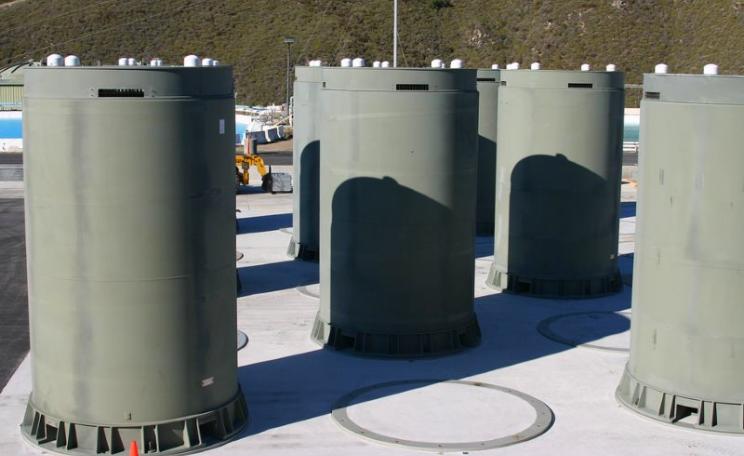French private water prices are on average 31% higher than in public water services. Five Pennsylvania towns that privatized their water saw their rates more than triple on average.
The potential sale of the Detroit Water and Sewerage Department is one more development of the idea that water, as with any commodity, exists to produce private profit rather than to be a public necessity.
And if corporate plunder is to be the guiding principal, then those seen as most easy to push around will be expected to shoulder the burden.
Thus, 17,000 Detroit residents have had their water shut off - regardless of ability to pay - while large corporate users have faced no such turnoff.
The Detroit Water and Sewerage Department began its shutoff policy in March with a goal of shutting off the water to 3,000 accounts per week. Residents can be shut off for owing as little as $150. That is only two months of an average bill.
Detroit water rates have more than doubled during the past decade, according to Left Labor Reporter, and in June another 8.7% raise was implemented.
For businesses, it's another story
Yet only in July, months after residential water shutoffs began, did the water department announce it would send warning notices to delinquent businesses. There is no report, however, that any business has had its water turned off.
About half of the city's overdue water payments are owed by commercial and industrial customers. Forty offenders, according to the department, have past-due accounts ranging from around $35,000 to more than $430,000. One golf course operator is said to owe hundreds of thousands of dollars.
The same week that the residential water shutoffs began, Detroit Emergency Manager Kevyn Orr put the water department up for sale. The department takes in about $1 billion in revenue per year, The Wall Street Journal reports, and collects more revenue than it spends.
The system would potentially be a valuable asset for one of the multi-national corporations that have taken over privatized water systems around the world, mostly to the regret of the local governments and ratepayers.
Reversing the privatization of water
If Emergency Manager Orr succeeds in selling off Detroit's water system, he will be bucking a trend. Dozens of cities in France and Germany have reversed earlier privatizations and are taking back their water systems after finding that higher prices and reduced services had been the norm post-privatization.
French private water prices are on average 31% higher than in public water services. Five Pennsylvania towns that privatized their water saw their rates more than triple on average.
French private water prices are on average 31% higher than in public water services. Five Pennsylvania towns that privatized their water saw their rates more than triple on average.
That rate differential shouldn't come as a surprise - a government doesn't need to generate a profit like a corporation. A water company, like any other capitalist enterprise, is expected to generate large profits for its investors and giant payouts to its executives, and thus must extract more money out of its property.
If the water system is privatized, Detroit's city budget will receive a one-time boost, but forgo future revenues and lose control of a public good built with public money.
Nor is there any guarantee that it would be sold at market value. A utility undervalued would produce quicker profits for any water company that got its hands on it, and every incentive is for it to be bought at as low a price as possible.
Creative financing to rob the people
Banks, however, have already extracted huge profits from Detroit's infrastructure. The water department is believed to have paid banks penalties of $537 million to escape its disastrous interest-rate default swaps.
Instead of simply selling plain-vanilla bonds - paying bond holders a set amount on a set schedule - Detroit (like many municipal governments) became entangled in various complicated financial derivatives layered on top of its bonds.
Investment banks sold local governments interest-rate swaps as a form of insurance as a hedge against rising interest rates. But if interest rates went down - which they did - then the governments would be on the hook for large sums of money. (That rates would fall was predictable; central banks cut interest rates as a matter of routine during recessions.)
Thanks to financial engineering falsely sold as "insurance", the Financial Times reports it will cost Detroit $2.7 billion to pay back $1.4 billion in borrowing - this total includes $502 million in interest payments and $770 million as the cost of the derivatives.
The $537 million the Detroit water department handed to banks to escape continued extra payments to cover the swaps is more than four times the entire past-due water bill, residential and commercial, at the start of the water shutoffs in March.
Not so quick to challenge the banks
Yet there appears to be no effort to recoup any of that penalty money or to investigate if there was any illegality in the deals. Curt Guyette, writing for a Detroit alternative publication, Metro Times, said:
"Given the fact that former Mayor Kwame Kilpatrick, who is now is serving a decades-long sentence in federal prison for running the city as if it were a criminal enterprise when these deals went down, it doesn't seem unreasonable to at least suspect that something shady might have been going on.
Nonetheless, Orr and the legal team from [corporate law firm] Jones Day - where Orr was a former partner, and which has as clients both Bank of America and a division of UBS - have, as the complaint [filed in federal court by community activists] points out, 'failed to investigate the misconduct or take measures to recoup any portion of the $537 million in suspect termination fees paid to the banks.' "
Both Bank of America and UBS profited enormously from the interest-rate swaps. Emergency Manager Orr does not seem terribly bothered by democratic processes, however. He is going ahead with a separate plan to privatize Detroit's parking department despite the fact that the City Council voted, 6-2, against it.
The Detroit Free Press reports that the parking system generates $23 million in revenue with only $11 million in expenses. This would be another revenue stream leaving public hands, and the same needs of a private owner to generate profits would be expected to lead to the same results that privatizations of water systems and other public services have led.
Fighting back against 'market' iniquities
The people of Detroit are fighting back, through demonstrations, lawsuits, appeals to the United Nations and in physically blocking crews assigned to turn off the water. Water is also being turned back on without asking for permission from authorities.
Activists demand the immediate resumption of water service for everyone and to make water affordable. Detroit Debt Moratorium, for example, is calling for water bills to be capped at 2% of household income.
These efforts have borne some fruit as Emergency Manager Orr issued an order handing Mayor Mike Duggan managerial control over the water department in late July. The department subsequently declared a moratorium on water shutoffs until August 25.
A commodity is privately owned for the purpose of profit, regardless of human need; that the commodity is something as necessary as water does not alter that a commodity goes to those who can pay the most.
The market determines who gets what, or if you get it at all - and the market is simply the aggregate interests of the most powerful industrialists and financiers.
The agony of Detroit is the logical conclusion of allowing ever more social and economic decisions to be decided by market forces. Detroit just happens to the be the locality that got there first.
Pete Dolack writes the Systemic Disorder blog. He has been an activist with several groups.
This article was originally published on CounterPunch.
Photos: from Detroit Water Brigade Facebook page.
Also on The Ecologist: 'We must support Detroit's fight for the right to water' by Justin Wedes.







